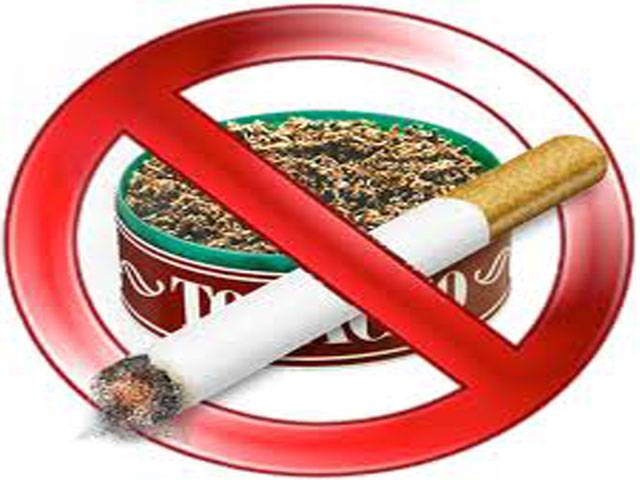Islamabad - Members of civil society and media have supported tobacco control advocates’ efforts for legislation on comprehensive ban on tobacco advertisement, promotion and sponsorship (TAPS).
Addressing an advocacy meeting organised by TheNetwork for Consumer Protection, senior journalists, representatives of various non-government organisations (NGOs) and health professionals expressed their concerns at the lacklustre efforts of the government to check rise in tobacco incidence in the country and demanded of the ministry of national health services, regulation & coordination (NHSRC) to immediately get the law passed by the Parliament.
Executive Coordinator of TheNetwork Nadeem Iqbal in his introductory remarks said the commitment for TAPS was made by Pakistan to the international community while ratifying FCTC in 2004. “However, we are still far from moving on it even after ten years,” he said. In his presentation, Nadeem Iqbal drew the participants’ attention towards a recent report of the State Bank that revealed shocking facts that Pakistanis smoked away Rs 250 billion in cigarettes last year. Some 64 billion cigarettes were consumed during this period alone, he further said. Despite Tobacco Control Law 2002 and a number of SROs issued by successive governments to control tobacco advertisement, the authorities seem helpless before the tobacco industry. Tobacco industry is using various tactics to counter government as well as civil society’s efforts aimed at comprehensive ban on TAPS. On a micro level, tobacco industry offers various incentives and promotions to retailers in order to bring back former smokers and attract new smokers. The industry through subtle campaign and means weakens the will power of those who intend to give up smoking, he said.
However, despite these disheartening figures, there are a number of success stories too, said Nadeem Iqbal. He mentioned Capital Administrative Development Division (CADD) initiative of ‘Smoke Free Islamabad’ which is yielding positive results.
Another positive outcome is enforcement of tobacco control law in public places and vehicles and on print and electronic media too. Courts have also given some important decisions in recent past regarding ban of tobacco, he said while quoting a number of judgements. He said Pakistan is a signatory to the WHO Framework Convention on Tobacco Control (FCTC) that is a global forum against tobacco spread. “In 2004, we had committed to implementing the article 13 of the FCTC within a time period of five years; however after passage of ten years, we are yet to implement it and lagging behind the schedule.”
Similarly, Supreme Court in 2006 took a suo moto for implementation of tobacco control laws but after initial hearing, the matter is still pending with the apex court. Smoking is continuing unabated at press clubs, bar councils and government offices, which is a challenge for the ministry of national health services, regulation & coordination and tobacco control advocates.
Dr Naureen Arshad, project coordinator, briefed the participants on the concept of MPOWER (monitor, protect, offer, warn, enforce and raise). This is a WHO-policy package and each signatory has to implement it in its local context, she said. So far in Pakistan, the project compliance is less than 50 per cent, she said. “We are far from enforcing MPOWER in true letter and spirit and a commitment is required at public and private sector levels,” she added.
Giving rationale of the model law on TAPS, Dr Naureen Arshad said despite existence of Dec 31, 2013 SRO that calls for comprehensive ban on tobacco product advertising at point of sale (POS) more than 77 per cent violations have been reported during a recent survey. Similarly sale of cigarettes to underage boys is more than 87.4 per cent. The government is yet to raise taxes on cigarettes as per requirement of the WHO Framework Convention on Tobacco Control (FCTC) of which Pakistan is a signatory, she said.
Friday, November 22, 2024
Ban on tobacco advertisements sought

Rupee gains 09 paisa against dollar
November 22, 2024
Gold prices increase by Rs3,700 per tola
November 22, 2024
PSX reaches historic level of 97,328.40 points
November 22, 2024
-
Hunger crisis to increase in South Sudan, warns UN
-
Hunger crisis to increase in South Sudan, warns UN
-
Pakistan’s judiciary champions climate justice at COP29 in Baku
-
Punjab struggles with persistent smog as Met Office forecast rainfall
-
Punjab residents face escalating smog crisis as pollution levels soar across country
-
Qatar says Hamas 'no longer welcome' in Gulf state
Land of Vigilantes
November 21, 2024
United in Genocide
November 21, 2024
Finally Fighting Back
November 21, 2024
Digital Stagnation
November 20, 2024
Xi’s Red Lines
November 20, 2024
Independent Supreme Court
November 21, 2024
Fat Loss Fantasy
November 21, 2024
Tackle Corruption Within School Boards
November 20, 2024
To Be Opportunistic
November 20, 2024
Democratic Backsliding
November 20, 2024
ePaper - Nawaiwaqt
Nawaiwaqt Group | Copyright © 2024





